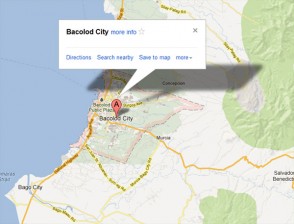
Del Pilar, 66, died of yet another heart attack at 11 a.m. Thursday at the home of his daughter here where he had been staying after his release from hospital last Holy Week.
His wife, Teresa, said Marcelo died without getting his retirement money, which could have saved his life.
“It is very sad that the government he served for so long failed him in his hour of need,” Teresa said.
She said her husband’s condition may have been aggravated by stress because their property in Bacolod was up for foreclosure and he had been delayed in paying his auto loan due to his mounting medical expenses.
Teresa said they had hoped his retirement pay could have settled their mounting bills and saved their property. Marcelo had also been hoping that the money would pay for his much-needed heart bypass.
Marcelo was acting prosecutor of Cadiz City in Negros Occidental when he retired on July 15, 2011 after reaching the mandatory retirement age of 65, capping 36 years of government service.
In an interview with Inquirer last month, Marcelo said he hoped that his lump sum retirement fund would be enough for his bypass, which his cardiologist recommended after he suffered heart attacks in 2007 and 2010.
But just like more than 100 prosecutors nationwide who have retired since 2011, Marcelo didn’t receive his lump sum benefits. They were never told why.
For a year, Marcelo had to live on money borrowed from his children because of the rule that bars prosecutors from practicing law for a year after retirement.
He started private practice last year but on March 16, he had another heart attack.
After his release from the hospital last Holy Week, Teresa said she thought her husband’s health had improved.
His remains are now in his daughter’s home in Barangay Villamonte.
In March, after the Inquirer informed it of Marcelo’s plight, the office of presidential spokesman Edwin Lacierda wrote the office of Justice Undersecretary Leah Tanodra Armamento to inquire about the delay in the release of the prosecutors’ retirement pay.
Kristine Joanne Basa, executive assistant to Lacierda, quoted Armamento’s office as saying Marcelo’s case would be looked into and updates given. But when the Inquirer made a follow up on Thursday, Basa said she had not received any reply from Armamento’s office.
Lacierda’s office offered to help Marcelo with his medical expenses, through the Presidential Management Staff and the Philippine Charity Sweepstakes Office. Marcelo, however, was not interested.
Teresa said her husband did not want the government to give him a doleout for his operation. “He wanted what was due him, so he could pay for it himself,” she said.